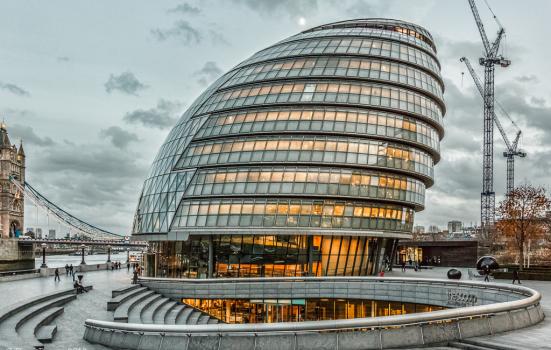What Can We Do with a Plan That Won’t Deliver?
Sadiq Khan’s New London Plan prioritises wellbeing issues – good growth, in relation to health, quality of life, social inequalities and the experience of residents, workers and visitors. But nevertheless, it is about growth – treated as being just as inevitable as in its predecessors from Livingstone’s first Plan on – at least in terms of population, employment and earnings. For housing the language is a more equivocal one of targets and capacities rather than actual forecasts of rates of addition to the stock. And the latest version of the London Housing Strategy says that housing output on the scale required (more than double past rates) cannot be achieved without central government action to change the ‘housing model’ by giving more powers and resources to the Mayor.
By day 4 of the Examination in Public (EiP), the discussion was still technically on the merits of the Plan’s broad spatial development policy. Yet questions were already being asked about how the EiP report could address the core issue of how to deliver what is promised. Preliminary discussions – at LSE London roundtables, and elsewhere – have also suggested broader issues including:
- does it really matter if targets are unrealistically high? and (if it does)
- what realistic remedial responses can be expected through:
- the EiP Panel’s final judgement and recommendation for this Plan; and
- the Mayor’s and Secretary of State’s responses to the published report
Behind these questions lie both:
- a Ghost of EiP Past – the 2014 EiP Inspector expressed disbelief in the deliverability of the housing targets and made his acceptance conditional on an instant review, which should embody a new philosophy for the Plan; and
- a Harbinger of Recriminations yet to Come. Both the Mayor and Secretary of State can already be heard rehearsing rival explanations for failure, based on each other’s inaction.
As framed by the Panel – in a form reminiscent of the (2015/6) Outer London Commission reports – a strategic question discussed was whether potential shortfalls in housing output could be substantially mitigated by reviews/releases of Green Belt land within London and/or collaboratively planned development beyond its borders. Among active participants on the day a majority both envisaged a substantial shortfall in delivery and supported one or both of the more ‘extensive’ city-regional approaches. Whether these are clearly related depends on a detailed understanding of both capacity and its relationship to delivery – topics which will be discussed in more detail in later sessions (and blogs).
Given the very real uncertainty being expressed about the fundamentals of the Plan, the question has already been raised: what then? Some examples of possible lines of action and their perceived problems include:
- adapting the New London Plan to impose on the Mayor particular obligations (of the form ‘the Mayor will’) to undertake
- a strategic review of London Green Belt, either directly or via concerted borough initiatives; and/or
- strategic investigations involving London and combinations of WSE partners willing to participate in mutually advantageous initiatives to enable more land to come forward.
- Refusing to accept the Plan as ‘sound’ in respect to (a) the adequacy of capacity-based targets for housing development and (b) the (wholly) inadequate consideration of alternative spatial options.
- Following the model set by the 2014 EiP, reluctantly approving the Plan while demanding an instant review with a new (city-regional) philosophy- although this certainly did not work last time.
All of these options are possible – but it must also be remembered that the Mayor does not have to take any notice of the Panel’s recommendations unless the Secretary of State or two thirds of the Assembly order him to do so! At one level one might wonder why we are sitting there!





